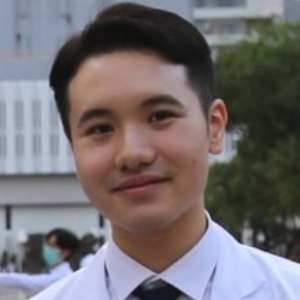Title : Leveraging chatGPT and large language models in orthopaedics: Enhancing patient care, diagnostics, and research
Abstract:
ChatGPT, a cutting-edge Artificial Intelligence (AI) chatbot built on Large Language Models (LLMs), has rapidly emerged as a transformative tool across various sectors, notably in orthopaedics. As the healthcare landscape evolves, its benefits and challenges are becoming increasingly recognized, particularly within the medical community. The broad accessibility of ChatGPT allows orthopaedic clinicians to explore an array of applications, ranging from generating differential diagnosis lists for conditions such as fractures and arthritis to streamlining patient documentation processes and optimizing surgical workflows.
In the field of orthopaedics, LLMs exhibit significant utility by effectively assisting clinicians during pre-operative assessments, helping them gather patient histories efficiently. For example, ChatGPT can facilitate the creation of patient education materials by synthesizing information on treatment options for joint replacement surgeries, thereby improving patient understanding and engagement. Furthermore, orthopaedic surgeons can leverage LLMs to generate detailed summaries of current treatment guidelines, ensuring they remain up to date with the latest evidence-based practices.
Despite these advantages, challenges remain in the implementation of LLMs. One of the notable issues is the tendency for LLMs to "hallucinate," meaning they may produce responses that appear confident but contain inaccurate information. Such inaccuracies could mislead clinicians, leading to suboptimal patient care. Additionally, there are concerns about biases that may be inherent in the training data of LLMs, which could perpetuate existing disparities in healthcare. The integration of these models into orthopaedic research also poses difficulties, such as the risk of "AI plagiarism," where generated content may inadvertently replicate existing literature without proper citation.
This paper aims to provide a thorough overview of LLMs, highlighting the significant advancements, particularly with ChatGPT, that have arisen in recent years. We will review recent studies that evaluate the impact of these language models in the medical field, focusing specifically on their applications within orthopaedics. Understanding the operational mechanisms of LLMs and their potential implications for patient care and clinical outcomes is essential for orthopaedic professionals as the technology progresses.
In our discussion, we will elucidate the benefits of utilizing LLMs, which include enhancing diagnostic accuracy and streamlining communication with patients. Furthermore, LLMs can assist in research by synthesizing complex medical literature, providing orthopaedic specialists with concise summaries of relevant findings. Nevertheless, we will also address the challenges of ensuring the reliability of generated content and the ethical considerations of deploying these models in clinical scenarios.
By comprehensively understanding the advancements and limitations of LLMs, the orthopaedic community can optimize their application in practice and research, thereby improving patient outcomes. As AI technology continues to develop, being informed about the capabilities and ethical implications of LLMs will empower orthopaedic practitioners to enhance their clinical practices and ultimately contribute to a more effective healthcare system.




